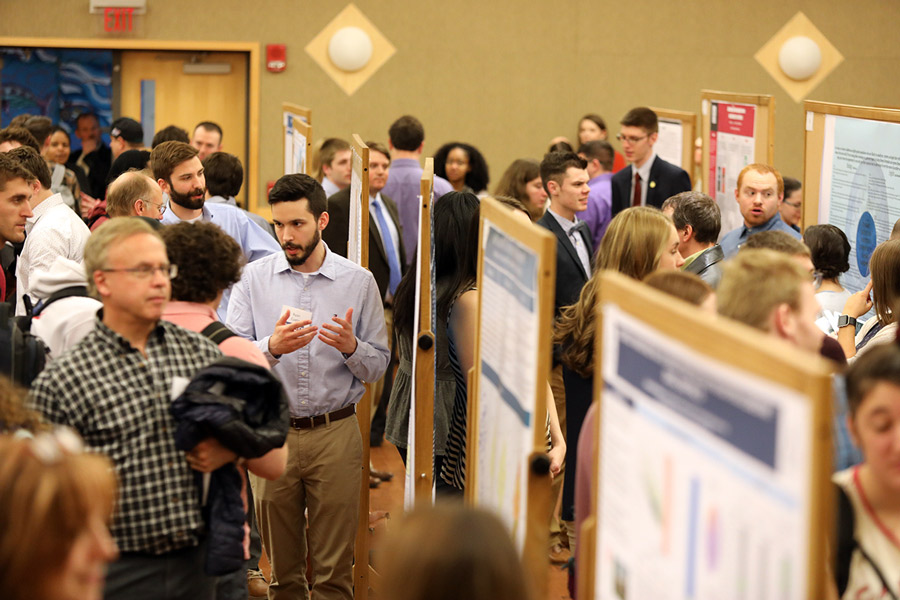


Published on April 13, 2018
 Displays of research and creativity filled the Student Center at Eastern Connecticut State University on April 13 for the annual CREATE conference. CREATE stands for "Celebrating Research Excellence and Artistic Talent at Eastern," and is the University's premier undergraduate conference of the academic year.
Displays of research and creativity filled the Student Center at Eastern Connecticut State University on April 13 for the annual CREATE conference. CREATE stands for "Celebrating Research Excellence and Artistic Talent at Eastern," and is the University's premier undergraduate conference of the academic year.
CREATE featured more than 200 students of all majors who led oral and poster presentations, panel discussions, music and dance performances, art and photography exhibitions, as well as documentary viewings and new-media demonstrations.
“This conference really cements our slogan that Eastern offers a ‘liberal arts education, practically applied,’” said Brian Oakley, conference co-chair and professor of environmental earth science. “It’s evident when you look around and see the breadth and depth of the work being done by our students.”
“There is no event on campus more important than CREATE,” affirmed Eastern President Elsa Núñez. “Some of the work on display represents three or four years of problem solving, testing and intellectual pursuit. This event is more than a source of pride; it’s a validation of our university’s mission.”
Midway through the conference, two students and two faculty members received awards for undergraduate research and faculty mentorship.
Julie Underhill ’18, who majors in labor relations and human resources management, and Tess Candler ’18, who double majors in political science and economics, received the undergraduate research awards. The faculty awards went to Underhill and Candler’s mentors, respectively: Business Administration Professor Niti Pandey and Political Science Professor Courtney Broscious.
“Without the professors we cannot celebrate the success of the students,” reminded Provost Dimitrios Pachis, “and without the students we cannot celebrate the success of the professors. This is how the world works, the yin and the yang. With this sort of partnership, we create the future.”
The CREATE conference advances Eastern’s strategic plan by reinforcing high-impact practices such as mentored research and creative projects; increasing the percentage of students who present scholarly work; raising awareness of the accomplishments of Eastern students; and contributing to the intellectual richness of the campus community.
Written by Michael Rouleau